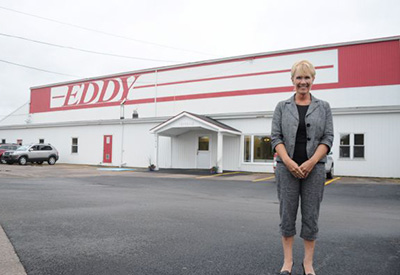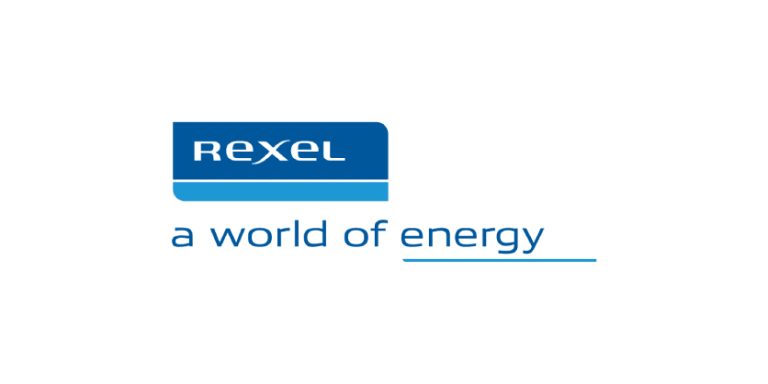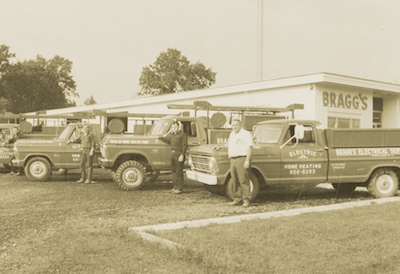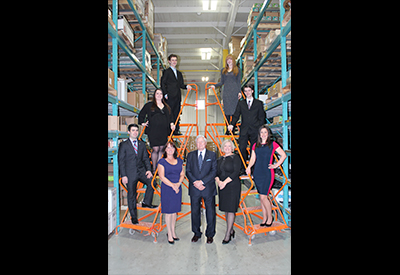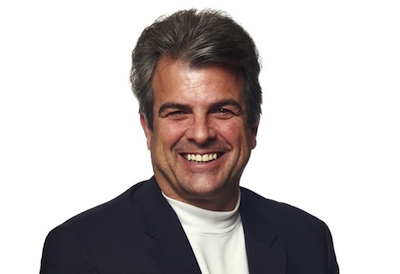Rexel’s Jeffrey Moyle — Taking Strategy from a White Board to Reality
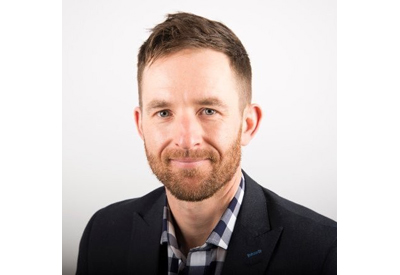
May 12, 2021
By Line Goyette
“The ongoing integration of Rexel Utility into our Canadian business platforms has underscored our responsibility as an organization to find creative solutions for today’s challenges, as well as to prepare for tomorrow’s opportunities.” This quote from Jeffrey caught my attention. Vice President, Supplier & Digital Strategy at Rexel Canada Electrical Inc., Jeffrey has extensive experience in the industry and is a graduate of the University of Western Ontario with a Master’s in Business Administration, focusing on international leadership. During the pandemic, Jeffrey embarked on a lifegoal of completing a Masters in international affairs and diplomacy, with a long-term vision of completing a PhD in the field. I had no doubt he would have much to say about the industry and the challenges we face.
You’ve had ever increasing roles of responsibility in your career. What do you like about the electrical industry? How and why did you jump from a junior fund accountant at OMERS to starting in wire and cable at ECS?
Both my parents were accountants. As I was growing up, I recognized that accounting was a field best left to others. Over the past 15+ years, I’ve learned that I like working in an industry that provides products and services that are essential to everyday life, and in that way it feels “future proof” in many ways.
You’ve spent much of your career in the electrical industry. What do you see as the most important changes in the last few years? Disruptive technologies? New business models?
The most visible change is the generational transition unfolding before us. It’s particularly obvious to me as I am a little older than the traditional Millennial. As for technologies, I don’t view them as disruptive, you just need to keep an open mind and move with progress. The alternative would be to fight; that never ends well.
On the subject of business models, COVID has revealed that systems or any type of organizational architecture are all useless if the corporate culture is disengaged. You can have the best and smartest minds, but if you can’t harness all aspects of your workforce, no “model” can offset that deficit.
How challenging have recent changes been for you?
I really see challenges as a series of opportunities.
The recent move by Rexel to acquire WESCO’s utility business was a bold one. Without revealing any inside secrets, what prompted you to make this move?
I’ve been asked this a lot recently. Many factors contributed to the decision. Acquiring the business creates natural synergies — the core “Wesco business” fits well into our structure and reinforces our strategy going forward. At a high level, Canada is a net receiver of immigration and we have capacity to absorb more. Our country will need to expand, upgrade and improve our infrastructure to accommodate them.
We also liked the people, form and structure of WESCO’s utility business; we’re lucky to have them!
What has the pandemic meant for the business?
As the Canadian economy begins to recover from the impact of COVID, we will be fully engaged in all sectors that are primed for investment. Acquiring Wesco’s utilities business has given Rexel a firm footing to act on residential, commercial, industrial and utility opportunities alike.
In terms of how we do our jobs, COVID has proven to me that travel, face-to-face meetings and the general organization of how we work can evolve. For example, video conferencing will be around for the foreseeable future, and I’m okay with this. Once we’re on the other side of this pandemic, I can’t see myself returning to the travel schedule I had.
Also, I would be remiss to mentioned, alongside the obvious impact of COVID, we have seen an evolution in the meaning of what we perceive to be “essential,” “utility” and “value.” These words have evolved and have a higher meaning versus our pre-COVID life.
How has COVID-19 shaped your own thinking and your timelines?
I don’t look at COVID as a “business extinction” event that many consider it to be. I see COVID and the associated challenges as a yardstick we can measure ourselves against.
The key for me, my family and Rexel has been to maintain consistency as we survive, revive and hopefully thrive in a world impacted by COVID. For me, the pandemic has given the clarity I needed to think, act and reinvent the way we approach opportunities, problems and solutions.
Buying teams — those folks making the decisions — often comprise people with long industry insights brought together with those who have only a few years in the business. Having younger people at the decision-making table means the more experienced team members must know how to speak the same language and talk about the things that are important to them. How do you see this dynamic rolling out, and how do you see addressing this in electrical distribution?
Interesting question. The tension between young and old is overhyped and has been for centuries. It’s no different in the electrical industry. Being Canadian, we are accustomed to diversity and inclusion; inter-generational engagement lines up with this identity.
I have employees in my immediate operating group with industry experience ranging from one month to 45+ years. The mix of experience is amazing and a true asset to our company. It allows for well-rounded decision-making that takes into account a wider range of experience. It’s a net positive for Rexel.
What is the focus for these teams? Value proposition, customer experience, solutions, new lines?
My perspective is such that Canadian electrical distribution is entering a renaissance period. We have a real opportunity to redefine what we are and how we can contribute. Technology will be a driver of our reforms, alongside repurposing elements that have made this a durable, resilient and expanding industry.
How do you see electrical distributors leveraging their expertise as a value proposition versus Amazon and other players like it?
“Value” means something different to everybody. I see the electrical industry transitioning to a model that recognizes the commoditization of certain verticals, while others will always need expertise alongside a robust understanding and mastering of supply chain services.
Being a low-cost provider of a “good” is easy; being able to impact a customer’s experience through engagement is another sequence of events requiring trust, expertise and capacity. I see Rexel as well-positioned to meet these challenges.
Like any industry, evolution is natural; the “Amazon” effect speaks to this process.
In your role of facilitating digital transformation, what has been the toughest part — internal communications, educating the sales force, or the speed at which things must be learned and implemented?
The key is to move from one state to another with the idea of improving the experience for all touch points throughout. Strategic patience is critical. It’s something I’ve learned over time.
I’ve been fortunate in that Rexel had embarked on a digital transformation well before my tenure began. The most difficult aspect of my role is to listen, digest, triangulate, and then consider the fit for our company. Sometimes I have to say no to great ideas because I know deep inside that it wouldn’t fit for Rexel.
I keep a basic set of rules in the form of questions: “Does this help? Who does it help? Why haven’t we done this before?”
What’s the favourite part of your job today?
A number of things. The diversity of the portfolio always keeps me engaged. Being able to directly impact our business. Solving legacy issues. Taking strategy from a white board to reality. Executing is without a doubt the hardest part, and moving from “talking to walking” brings me great satisfaction.
The people I work with are amazing: open minded, always willing to listen, and not afraid to voice opinions that might not be popular.
Also, creative freedom.
What role has mentorship played in your career?
I like to think I have a group of close contacts from diverse backgrounds (as opposed to one mentor) to bounce ideas off.
What I have noticed about this group is that the people who challenge or scare me the most are the ones I gravitate to. One of them once told me to “lean into the pain,” and that has served me well.
I think everyone should have a peer group, or a role model, to level set and course correct against.
What would you say to young professionals starting their career?
In terms of advice, a number of things. Develop positive routines. A career is more than a job, it’s the arc and path you want to take. Keep a long view and don’t dwell on frustrations of the moment. Keep principles and don’t deviate from them. Develop good habits, don’t be a slave to your devices, and be in the moment, not nose deep in a computer.
In terms of recommendations, my only one would be to read Deep Work: Rules for Focused Success in a Distracted World, by Cal Newport. The book has changed the way I work and I am forever grateful.
Line Goyette is Managing Editor of Kerrwil Publications’ Electrical Group.

